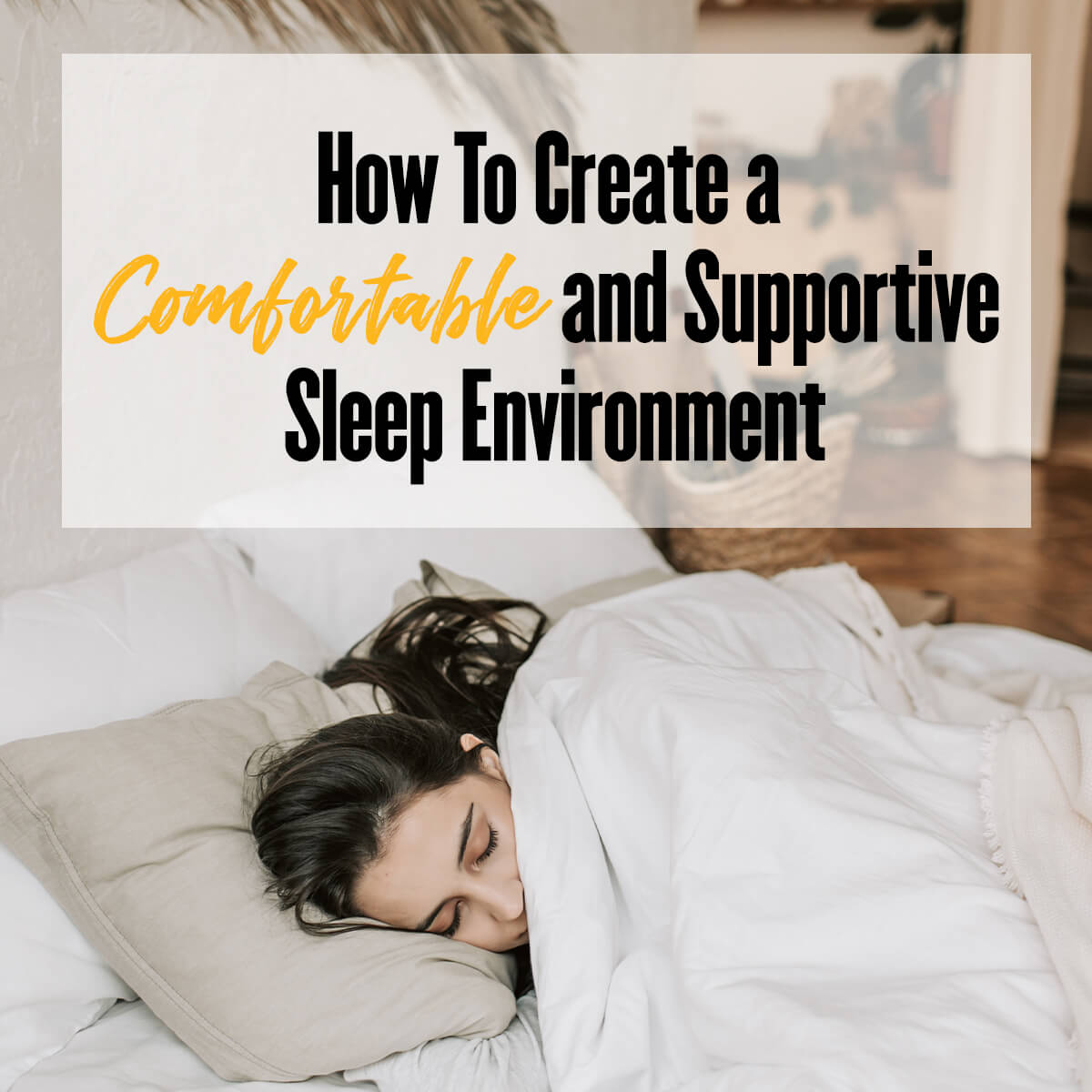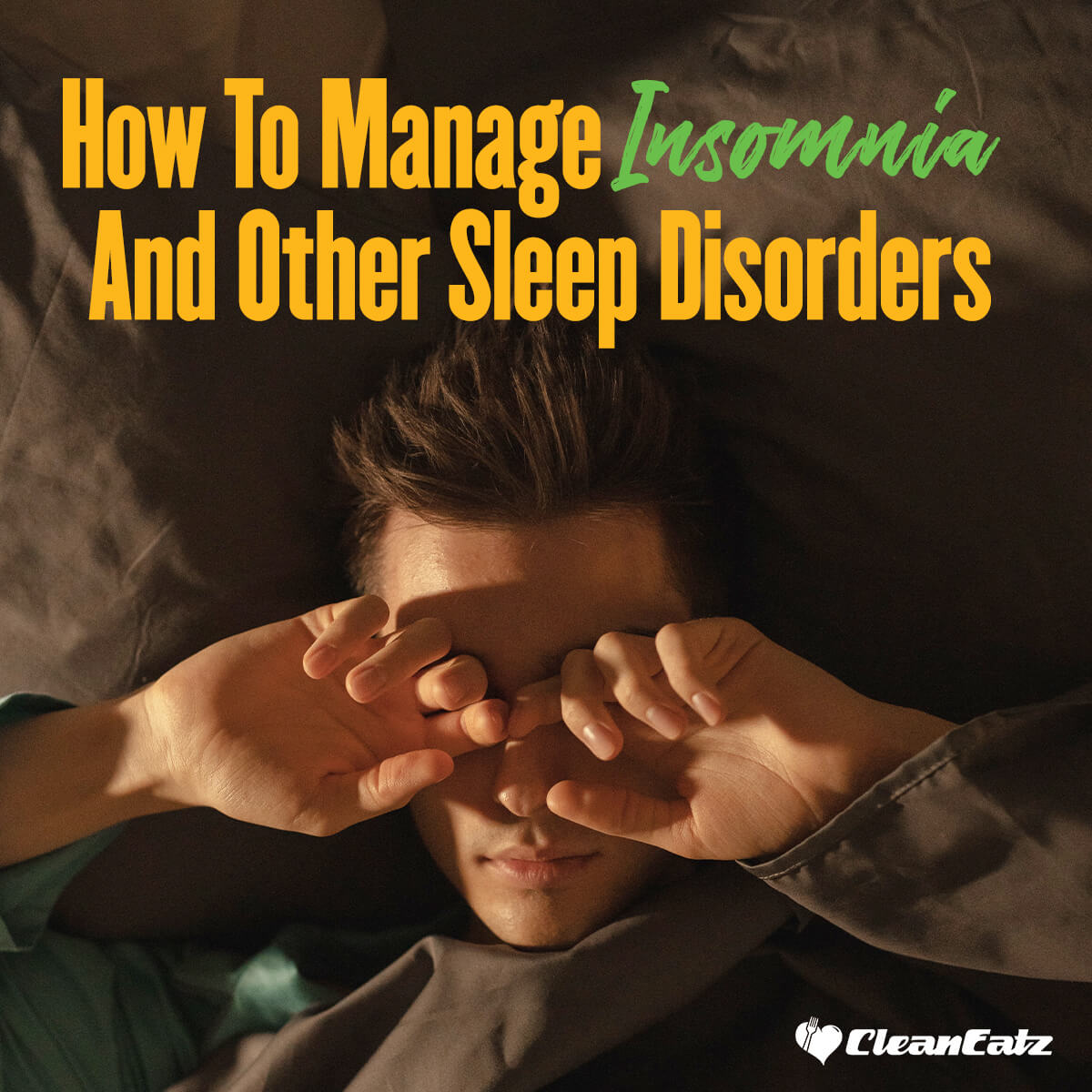
How To Create a Comfortable and Supportive Sleep Environment
Jason Nista
Mental Health
|
Sleep
6 minute read
How To Create a Comfortable and Supportive Sleep Environment
Do you want to improve your overall well-being and feel at your best during the days? Getting a good night's sleep is essential for your physical health, mental clarity, emotional balance, and quality of life.
It can be tricky in this digital age with its bright screens and endless distractions that pull us away from our bedrooms. Nevertheless, it is important to prioritize creating an environment conducive to getting enough restful sleep each day, as insufficient amounts lead to feeling like a walking zombie and have far-reaching effects on success and health.
How to Design Your Bedroom for Maximum Comfort and Restful Sleep
Getting a good night's sleep is essential for our overall health and well-being, yet it can be challenging to achieve if our environment isn't conducive to restful sleep. Fortunately, there are some easy steps we can take to create the ultimate sleep environment that is both comfortable and supportive of a good night's rest. Let's look at 14 tips on how to do this!
1) Keep Your Bedroom Dark
Your body produces melatonin when it gets dark, which helps you fall asleep faster and stay asleep longer. To keep your room dark, use blackout curtains or even an eye mask if needed.
2) Maintain a Comfortable Temperature
The ideal temperature for sleeping is between 60-67 degrees Fahrenheit (16-19 degrees Celsius). Keep your bedroom at this temperature by using air conditioning during the summer months and an extra blanket during the winter months.
3) Block Out Noise
Noise can easily disrupt your sleep, so make sure you find ways to block out any sound from outside your bedroom, such as traffic noise or barking dogs. Use a white noise machine or earplugs if needed.
4) Avoid Electronics
Electronics emit blue light, which has been found to disrupt melatonin production and delay sleep onset time, so avoid using electronic devices in the hour before bedtime or keep them at least 6 feet away from where you sleep (so put them across the room). Make sure that all screens in your bedroom are turned off, too, as they may still emit blue light even when not in use!
5) Invest in Quality Bedding
Quality bedding makes all the difference when it comes to getting a good night's rest (not just for comfort but also for hygiene reasons). Make sure you invest in a mattress that provides enough support for your back and neck, as well as pillows that provide proper neck alignment while sleeping on your back or side (depending on what position you prefer).
6) Avoid Caffeine Late in the day
Consuming caffeine late in the day has been linked with difficulty falling asleep and staying asleep throughout the night. Therefore, avoid drinking caffeinated beverages after 2 pm if possible (earlier if you are sensitive to caffeine).
7) Exercise Regularly
Exercise has been found to improve the quality of sleep and boost alertness during waking hours so try to get at least 30 minutes of exercise every day (but avoid exercising right before bedtime).
8) Establish A Routine
Having a consistent routine helps signal to our brain and body that it’s time for bed by creating an association between certain activities (like brushing teeth) and going to bed. So establish a nightly routine that includes winding down activities such as reading or taking a bath for 1-2 hours before going to bed each night (and stick with it!).
9) Use Calming Scents - Add Some Aromatherapy
Aromatherapy, which uses calming scents, has been known for its calming effects and helps promote relaxation before bedtime, such as lavender, chamomile, jasmine, and sandalwood.
Essential oils (make sure whatever product you choose is non-toxic) can be added to diffusers placed around the room before bedtime to create an atmosphere conducive to restful slumber. However, be careful not to overdo these scents – too much can be overwhelming!
10) Get Sunlight Exposure During the Day
Sunlight exposure helps regulate melatonin levels throughout the day so try to get at least 30 minutes of sun exposure each morning if possible – especially on sunny days! This will help ensure a better quality of sleep come nighttime!
11) Declutter
Remove any clutter or mess from your bedroom, and keep it clean and organized. Clutter can be distracting, making it difficult to fall asleep or stay asleep.
12) Keep Work Out of the Bedroom
Work-related items should be kept out of sight in order to encourage relaxation during time spent within this space. In addition, keeping work-related items away from where one sleeps helps differentiate between work and home life. This differentiation will help boost productivity during working hours since one does not associate their workspace with a place meant for relaxing activities such as sleeping!
13) Avoid Bright Lights Before Bedtime
Dimming lights after sunset can help signal our brain that it's time for rest, so avoid bright lights before bedtime, as they can cause alertness instead of relaxation!
14) Listen To Relaxing Music Before Bedtime
Listening to soothing music is effective at helping people relax and drift off into dreamland!
Nothing beats the feeling of crawling into bed after a long day. And if you have a comfortable sleep environment, you'll feel especially satisfied for doing so. You know that sinking-into-the-bed kind of feeling when your mattress is just right, and the pillow conforms to your head? That's ten times better when you have a good sleep setup.
Designing and Creating a Comfortable Sleep Environment!
- Creating a comfortable and supportive sleep environment is essential for physical health, mental clarity, emotional balance, and quality of life.
- Investing in quality bedding makes all the difference when it comes to getting a good night’s rest.
- Avoid caffeine late in the day and exercise right before bedtime; instead, establish a nightly routine that includes winding down activities an hour or two prior to bed each night.
- Use calming scents like lavender oil or chamomile tea before sleeping; get sun exposure during the day too! Keeping clutter away from where one sleeps while avoiding bright lights at nighttime also helps promote relaxation before dozing off into dreamland!



